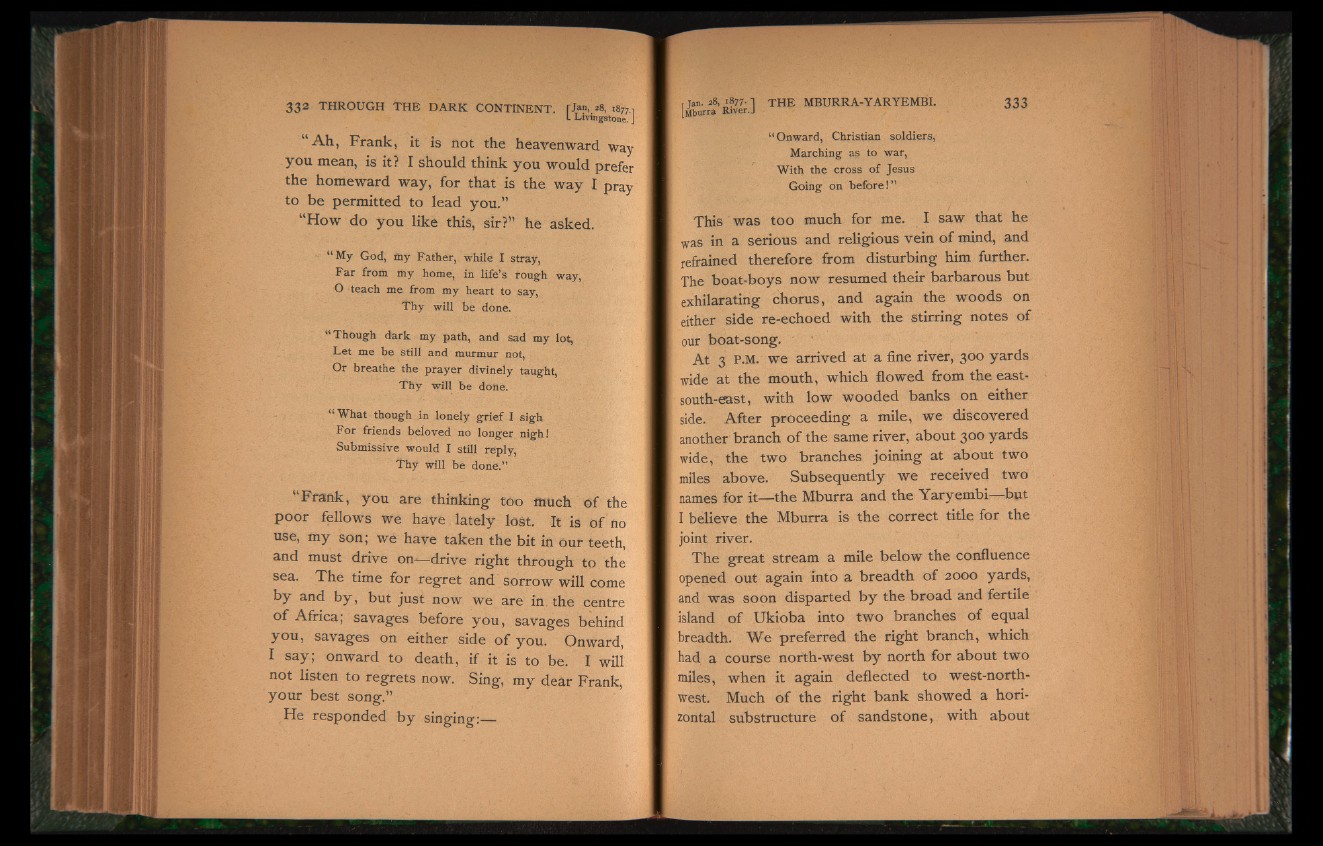
Ah, Frank, it is not the heavenward way
you mean, is it? I should think you would prefer
the homeward way, for that is the way P pray
to be permitted to lead you.”
“How do you like this, sir?” he asked.
“ My God, my Father, while I stray,
Far from my home, in life’s rough way,
O teach me from my heart to say,
Thy will be done.
“ Though dark my path, and sad my lot,
Let me be still and murmur not,
Or breathe the prayer divinely taught,
Thy will be done.
“ What though in lonely grief I sigh
For friends beloved no longer nigh!
Submissive would I still reply,
Thy will be done.”
“ Frank, you are thinking too much of the
poor fellows we have lately lost. It is of no
use, my son; we have taken the bit in our teeth,
and must drive on— drive right through to the
sea. The time for regret and sorrow will come
by and by, but just now we are in. the centre
of Africa; savages before you, savages behind
you, savages on either side of you. Onward,
I say; onward to death, if it is to be. I will
not listen to regrets now. Sing, my dear Frank,
your best song.”
He responded by singing:—
^ “ Onward, Christian soldiers,
Marching as to war,
With the cross of Jesus
Going on before!”
This was too much for me. I saw that he
| was in a serious and religious vein of mind, and
I refrained therefore from disturbing him further.
I The boat-boys now resumed their barbarous but
exhilarating chorus, and again the woods on
either side re-echoed with the stirring notes of
our boat-song.
At 3 P.M. we arrived at a fine river, 300 yards
wide at the mouth, which flowed from the east-
south-east, with low wooded banks on either
side. After proceeding a mile, we discovered
another branch of the same river, about 300 yards
wide, the two branches joining at about two
miles above. Subsequently we received two
[ names for it— the Mburra and the Yaryembi—but
I believe the Mburra is the correct title for the
I joint river.
The great stream a mile below the confluence
opened out again into a breadth of 2000 yards,
I and was soon disparted by the broad and fertile
I island of Ukioba into two branches of equal
I breadth. We preferred the right branch, which
I had a course north-west by north for about two
I miles, when it again deflected to west-northwest.
Much of the right bank showed a horizontal
substructure of sandstone, with about